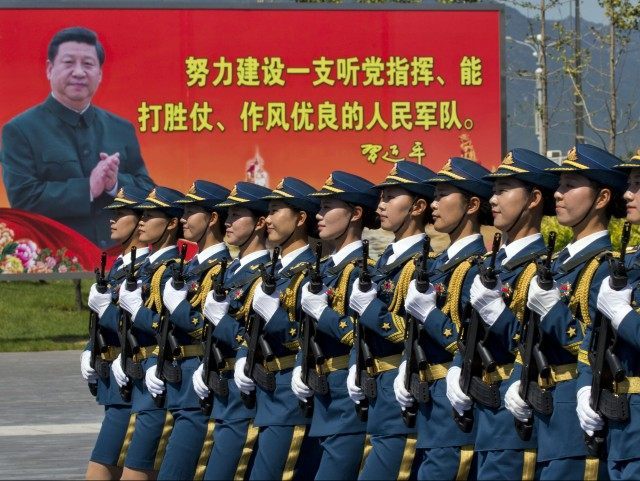China has reportedly begun to provide military aid to Afghanistan via a Russian plane as the Obama administration plans to further reduce the presence of U.S. troops in the country remain in place.
The U.S.-backed government of Afghanistan requested military assistance from China in late March, saying the “Afghan government remains committed and willing to work together with China for securing mutual and regional benefits” and “hailing China for its unconditional support to Afghanistan in the past 13 years,” reported Khaama Press (KP).
Since America’s invasion of Afghanistan in October 2001, the country has received nearly $113 billion in American taxpayer funds for reconstruction efforts, including $68 billion for the development of the U.S.-trained Afghan National Defense and Security Forces (ANDSF).
Nevertheless, Afghanistan has turned to both Russia and China for additional military assistance.
Last Sunday, “China’s first ever consignment of military aid to Afghanistan arrived in Kabul,” reports TOLO News.
“The consignment included military equipment, tankers and other items not specified,” noted Afghanistan’s National Security Advisor Mohammad Hanif Atmar.
According to TOLO, the aid arrived on board a Russian plane.
“The assistance to Afghan government indicates a common cause between China and Afghanistan. That common cause means that terrorism has been deemed a threat to both countries. The assistance is the beginning of a joint plan for combat against terrorism,” declared Atmar.
“This big regional initiative initiated by the Afghan government will steadily marginalize supporters of terrorism,” he added. “Terrorism and its supporters will not have any friends left in the region.”
Yao Jing, China’s ambassador in the Afghan capital Kabul, reportedly stressed his country’s continued support to Afghanistan, namely in the military area.
“The people and government of China know their duty to help Afghan military build and strengthen their own capacity to maintain to the safeguard their sovereignty and secure their future. This is the start of our cooperation with the Afghan army. We will leave no stone upturned to support the Afghan government,” he said.
The ambassador noted that China will also help the Afghan police, which is part of the U.S.-trained ANDSF.
“This consignment is equipment we need,” said Ghulam Sakhi Ahmadzai, deputy chief of procurement at Afghanistan’s Defense Ministry.
Despite tens of billions in U.S. taxpayer funds spent on developing the ANDSF and years of training by the American military, the forces have struggled to tame a Taliban resurgence and the emergence of the Islamic State (ISIS/ISIL) in the country.
Moreover, core al Qaeda’s relationship with the Afghan Taliban is growing stronger, the U.S military has warned.
The United States is expected to further reduce its military presence from estimated 9,800 now to nearly 5,500 by the end of this year.
“Although the planned reduction to 5,500 military personnel will limit some functions, the United States will be able to tailor TAA [train, assist, and advise] efforts to continue developing Afghan ministerial capacity and key ANDSF capabilities in areas such as aviation, intelligence, special operations, logistics, and maintenance, as well as maintain a U.S. capability to deter and disrupt threats in the region,” notes the Pentagon in a recent report.
“This presence enables a platform that will allow the United States both to pursue counterterrorism targets and to assist the ANDSF in further developing their special operations capability, which has proved increasingly critical to U.S. counterterrorism and broader security interests,” it adds.
U.S. military leaders have warned that once the U.S. withdraws from Afghanistan, Russia and China may move in to fill the vacuum.
“If we’re not there to provide influence, somebody else is going to be there, whether it’s Russia, China, Iran –you name it,” said Gen. John Campbell in late 2015 when he was serving as the top commander of U.S. and NATO forces in Afghanistan.

COMMENTS
Please let us know if you're having issues with commenting.